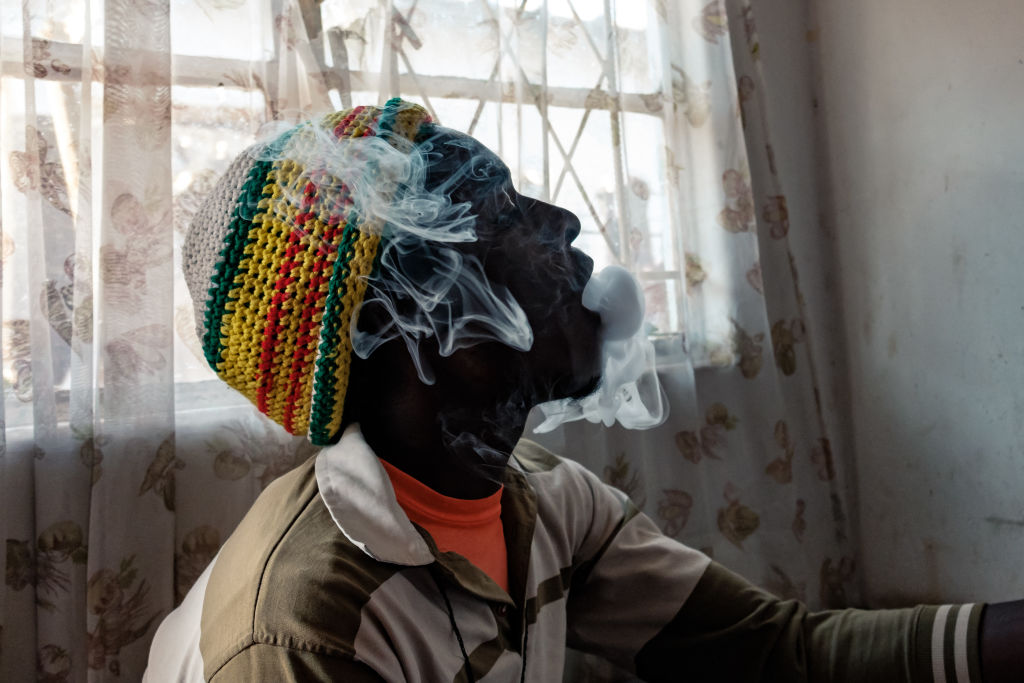ADF STAFF
Ellen Pakkies’ son, Abie, started to change when he turned 13. He became violent and unpredictable: He was addicted to methamphetamine, known in South Africa as tik.
Pakkies, who lives in Cape Town’s Lavender Hill community, ultimately killed her son in 2007 to escape the torture of living with his emotional outbursts, violent attacks, and demands for money to feed his addiction.
Pakkies’ story shocked a nation — particularly the Western Cape region — that has become a hot spot for tik abuse and trafficking. In the highly publicized case, Pakkies received a suspended sentence and brought scrutiny to the health care system that struggles to treat rising numbers of drug addicts.
“The things that he stole were not important to me. He was important to me,” Pakkies told the Sunday Independent in 2021. “I tried to make him feel that he belonged somewhere, but he never saw it like that.”
A recent report by the United Nations Office on Drugs and Crime shows dramatic growth in tik use in South Africa between 2017 and 2022. The drug is known as tik because of the ticking sound it makes when it is heated to smoke.
The drug is inexpensive and easily accessible. Those two facts have fueled a decadelong surge in its use across the country that shows few signs of slowing down.
Between 2017 and 2019, South Africa reported less than 1,000 kilograms of tik seized at its northern border with Zimbabwe. By 2022, the cross-border seizures had dropped, while drug busts at dozens of places across the country rose netting thousands of kilograms.
The same report found strong growth in tik use and trafficking in several other African countries, including Mozambique and Tanzania, as well as along the Benin-Nigeria border between Port Novo and Lagos.
In many cases, the users are teens whose developing brains can be dramatically and permanently altered by tik, which affects the frontal cortex. The frontal cortex regulates judgment, abstract thinking, creativity, and self-control in social situations.
South African researcher Paul Kerry told Journeyman TV that his MRI studies of adolescent tik users’ brains raised concerns about their future development. Adolescents’ brains continue to develop until they are in their mid-20s.
“We would typically have expected drug use histories to have been much longer to create these effects,” Kerry said. “The fact that we’re seeing them at this early stage of brain development — particularly vulnerable stages of brain development during adolescence — is worrying.”
In the first half of 2022, 2,270 people entered treatment for drug use in the Western Cape, according to the South African Community Epidemiology Network on Drug Use. The same report found that the top reasons for treatment were tik (35%), cannabis (24%), alcohol (18%) and heroin (7 %). Together, those drugs accounted for 84% of all admissions.
The physical and emotional violence that comes with tik addiction takes its toll on the families of those addicted to the drug.
Bernadine Bachar, director of the Saartjie Baartman Centre for Women and Children, recently told South Africa’s News 24 that her organization’s rehabilitation program for survivors of gender-based violence had seen growth in tik addiction among its clients.
“In fact, currently, all requests for placement are from survivors who are dependent on methamphetamine,” Bachar said. “Our program is constantly full.”

